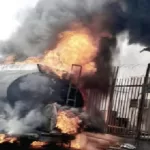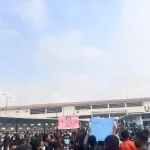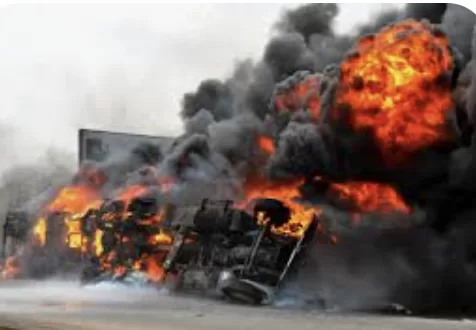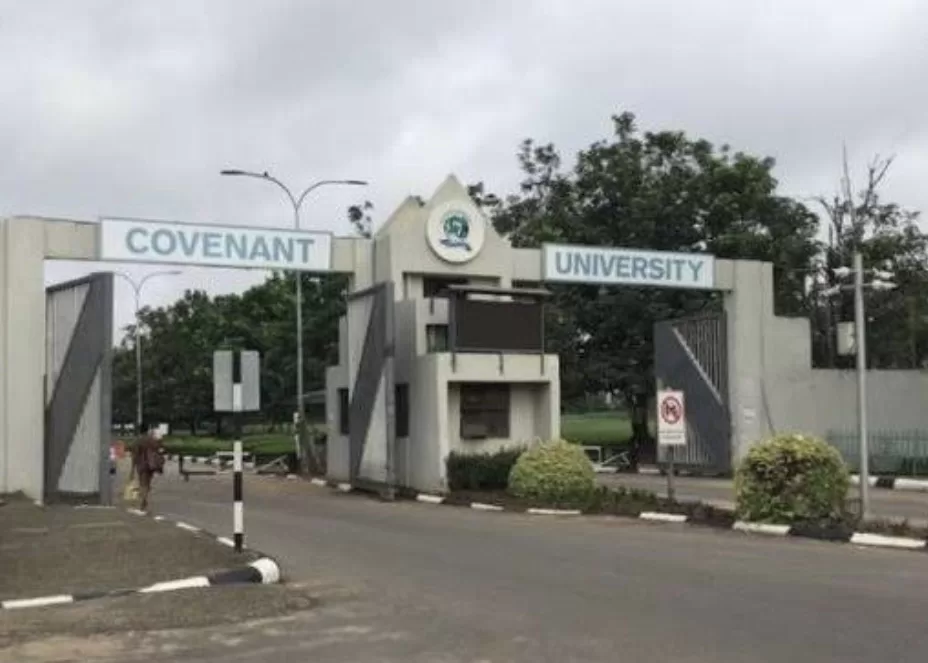Following the tanker explosion at Dikko Junction in Gurara Local Government Area of Niger State on Saturday, a mass funeral has been held for the victims, local authorities said on Sunday, while confirming that the death toll has risen from 80 to 86.
A total of 80 bodies were buried in a mass grave in the Gurara local government area after the tanker laden with gasoline exploded when it overturned, spilling its contents on a busy road in the Dikko area of the state on Saturday morning, Abdullahi Baba-Arah, head of the Niger State Emergency Management Agency, told reporters on Sunday.
The bodies of “five identifiable victims” were taken away by their relatives for burial, and one of the injured victims died while receiving treatment at a local health facility in the Dikko area, Baba-Arah said. The mass burial was done with the support of local government authorities and volunteers.
At least 55 people are now receiving treatment at local health facilities, the emergency response official added.
Tragedy struck Saturday morning as many residents in the Dikko area of Niger State were caught in a heavy fire while trying to scoop fuel from the fallen gasoline tanker.
Some residents had besieged the fallen tanker, scooping fuel while an attempt to switch on a power generator to ease the transfer of the petrol triggered an explosion, resulting in the deaths and destruction of properties, witnesses said. Most of the victims were said to have burned beyond recognition.
Reacting to the “worrisome, heartbreaking, and unfortunate” incident, Mohammed Bago, governor of Niger State, blamed “reckless truck drivers” for causing a menace to the lives of local citizens.
The governor, while assessing the extent of damage caused by the incident and the loss of lives, issued a ban on the movement of heavy-duty trucks plying the route where the explosion took place on Saturday.
Nantewe Yilwatda, minister of humanitarian affairs and poverty reduction, expressed concern over the rising frequency of tanker explosions in the country, warning motorists against reckless driving that could endanger innocent lives. He also urged tanker drivers and other motorists to adhere strictly to road traffic regulations.
Gasoline tanker explosions are not uncommon in Nigeria, often causing heavy casualties and nationwide grief. In September 2024, at least 48 people were killed after a gasoline-laden tanker exploded on a busy highway in Niger State.
While many Nigerians continue to attribute the incessant incidents to the current economic hardship, which has driven people to desperate actions, including scooping gasoline from fallen tankers, others are calling for stricter traffic regulations to prevent similar disasters.
In a statement, the Nigerian Governors’ Forum, statutorily consisting of all 36 state governors in the country, said the incident on Saturday “had cast a shadow of grief over the entire nation.”
The forum said it is united in calling for stricter enforcement of safety measures across the country, particularly regarding the transportation and handling of hazardous materials.
“This incident serves as a stark reminder of the urgent need to enhance our regulatory frameworks to prevent such occurrences in the future,” it emphasized.
Expressing “deep sorrow” over the incident and the immense human toll in a statement, Nigerian President Bola Tinubu described the explosion as “devastating.”
The Nigerian leader underscored the “tragic and preventable nature of the incident,” directed relevant authorities to provide comprehensive medical care to the injured, and instructed security and road safety authorities to implement measures to avert similar incidents.
He also strongly advised all citizens to exercise caution and avoid approaching accident sites, especially those involving fuel-laden vehicles, as they are highly explosive.
In addition, the president mandated the National Orientation Agency to initiate a nationwide educational campaign. This campaign will raise public awareness about the severe risks and environmental dangers of scooping fuel from fallen tankers, he added.











